
🌾 Introduction to JEEVN AI: A Game-Changer for Colorado Sorghum Farmers
In the vast plains of Colorado, where sorghum fields stretch as far as the eye can see, a new era of farming is dawning. Farmonaut Technologies introduces JEEVN AI, an innovative solution that promises to transform the agricultural landscape for sorghum farmers across the Centennial State. This cutting-edge tool harnesses the power of artificial intelligence and satellite technology to provide Colorado farmers with precise, actionable insights, ensuring their sorghum crops thrive in the unique climate and conditions of the region.
Colorado’s sorghum industry, which contributes significantly to the state’s agricultural output, faces unique challenges. With unpredictable weather patterns and the need for efficient water management in the semi-arid climate, Colorado sorghum farmers require specialized solutions. JEEVN AI steps in to address these specific needs, offering a tailored approach to sorghum cultivation that aligns with the state’s agricultural goals and environmental considerations.
🛰️ How JEEVN AI Works: Bringing Satellite Intelligence to Colorado Fields
JEEVN AI’s sophisticated system integrates multiple data sources to deliver precise recommendations for Colorado sorghum farms. By analyzing satellite imagery, local weather patterns, and farm-specific information, JEEVN AI creates a comprehensive picture of each field’s condition and needs.
For Colorado sorghum farmers, this means having access to:
- Real-time crop health assessments
- Localized weather forecasts
- Soil moisture analysis
- Pest and disease predictions
This wealth of information allows farmers to make informed decisions that are specifically tailored to the unique conditions of their Colorado sorghum fields. With JEEVN AI, it’s like having a team of agricultural experts constantly monitoring and advising on every aspect of the farm’s operations.
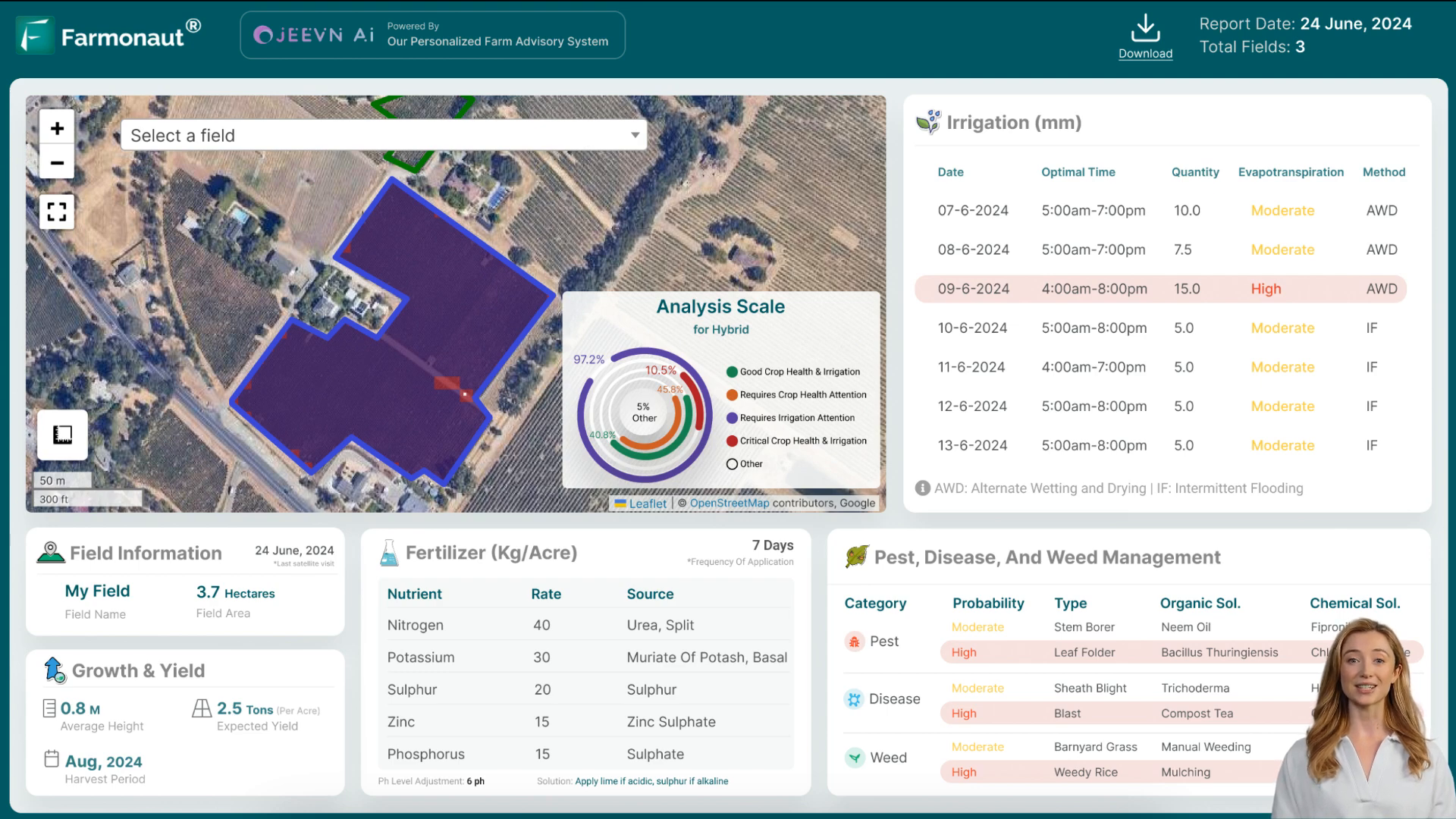
🧪 Soil Nutrient Analysis: Optimizing Sorghum Growth in Colorado’s Diverse Soils
Colorado’s soil composition varies greatly across the state, from the fertile river valleys to the more challenging high plains. JEEVN AI provides detailed insights into the nutrient levels of these diverse soils, analyzing concentrations of essential elements such as nitrogen, phosphorus, potassium, zinc, and sulfur.
For sorghum, which thrives in well-drained, fertile soils, this analysis is crucial. JEEVN AI helps Colorado farmers understand what their soil lacks and recommends appropriate fertilization strategies. This is particularly important in areas where soil may have been depleted by intensive farming practices or where natural nutrient levels may not be optimal for sorghum production.
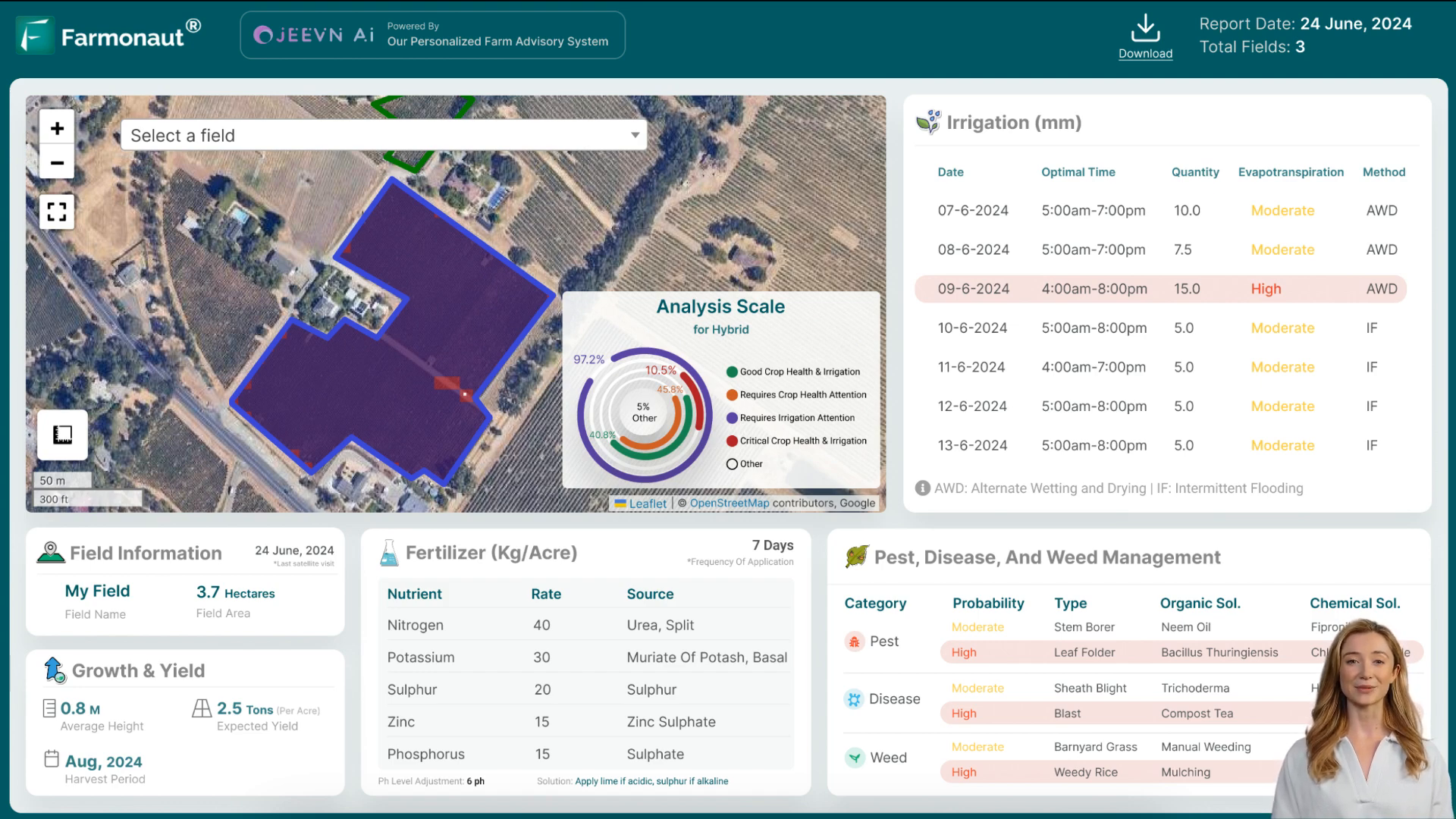
By maintaining optimal nutrient levels, Colorado sorghum farmers can:
- Maximize crop yields
- Ensure healthy plant growth
- Reduce unnecessary fertilizer use
- Minimize environmental impact
📊 Soil pH Management: Balancing Act for Colorado Sorghum
Soil pH plays a significant role in nutrient availability and overall soil health, which is particularly important for sorghum cultivation in Colorado. JEEVN AI monitors soil pH levels across sorghum fields and offers corrective measures when needed. This is crucial in Colorado, where soil pH can vary significantly due to factors such as irrigation practices and the natural composition of the soil.
Sorghum generally prefers slightly acidic to neutral soil (pH 6.0-7.0). JEEVN AI helps Colorado farmers maintain this optimal range, enhancing nutrient uptake and promoting better crop performance. If the soil pH falls outside the ideal range for sorghum, JEEVN AI suggests appropriate corrective actions:
- Lime application to raise pH
- Sulfur application to lower pH
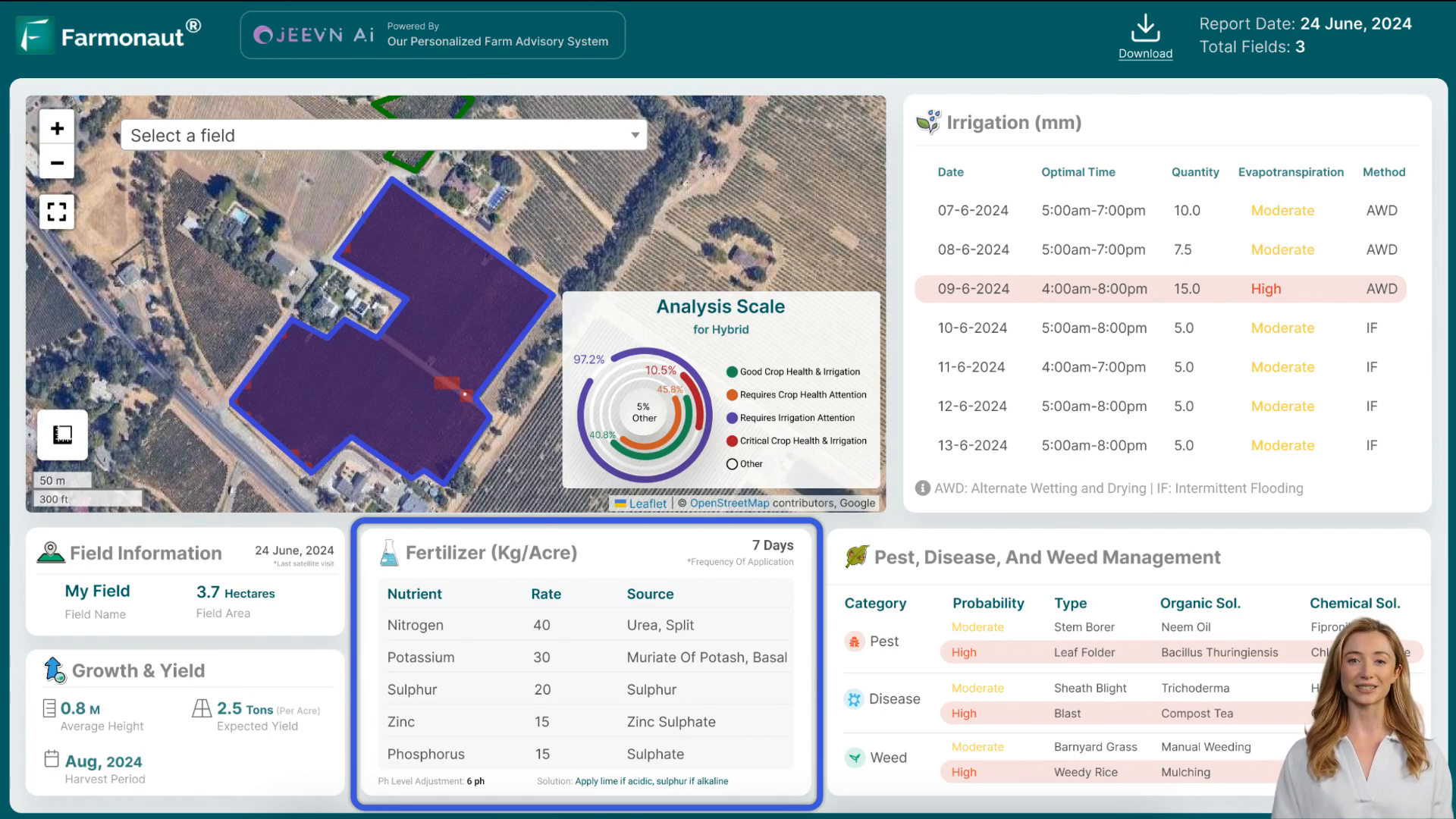
By keeping soil pH in check, Colorado sorghum farmers can ensure their crops are able to access the nutrients they need, leading to healthier plants and improved yields.
🐛 Early Pest and Disease Detection: Protecting Colorado’s Sorghum Crop
One of JEEVN AI’s most impressive features is its ability to identify potential pests and diseases that could affect Colorado’s sorghum crops. By analyzing satellite images, weather patterns, and local data, the tool can predict pest outbreaks and suggest preventive measures.
This is particularly valuable for Colorado sorghum farmers, who face threats from pests such as:
- Sorghum midge
- Greenbugs
- Fall armyworms
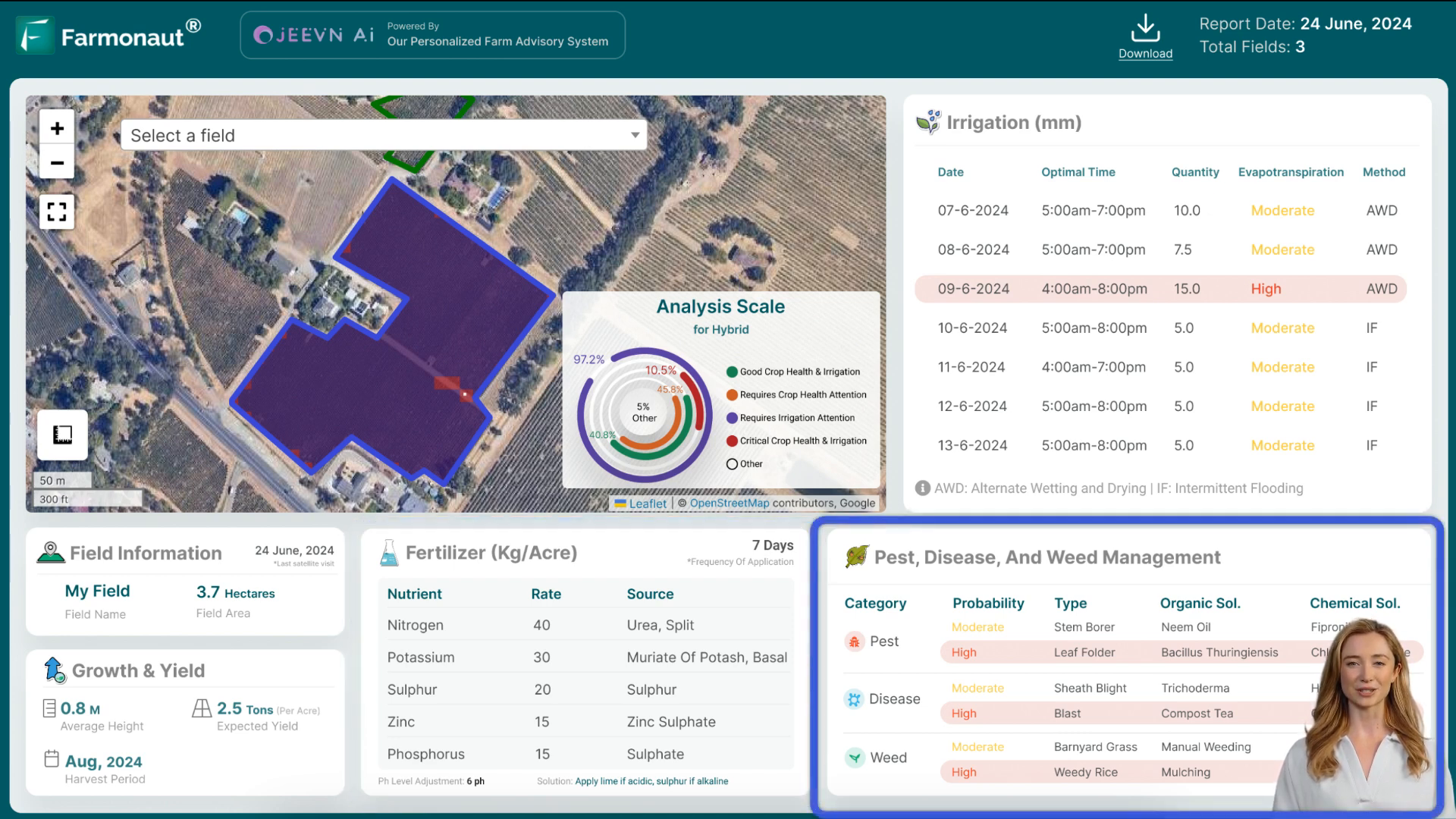
Early detection and intervention are key to minimizing damage and reducing reliance on chemical pesticides. For example, if conditions are favorable for a sorghum midge outbreak, JEEVN AI will alert farmers and provide preventive measures to protect their crops. This proactive approach not only helps safeguard yields but also promotes more environmentally friendly farming practices by reducing the need for broad-spectrum pesticides.
💧 Water Management: Crucial for Colorado’s Semi-Arid Climate
Efficient water usage is essential for sustainable farming, especially in Colorado’s semi-arid climate where water resources are precious. JEEVN AI uses a combination of weather data, soil moisture levels, and crop requirements to determine the optimal irrigation schedule for sorghum fields.
By providing precise recommendations on when and how much to water, JEEVN AI helps Colorado sorghum farmers:
- Conserve water resources
- Prevent over or under irrigation
- Optimize crop water use efficiency
- Comply with local water regulations
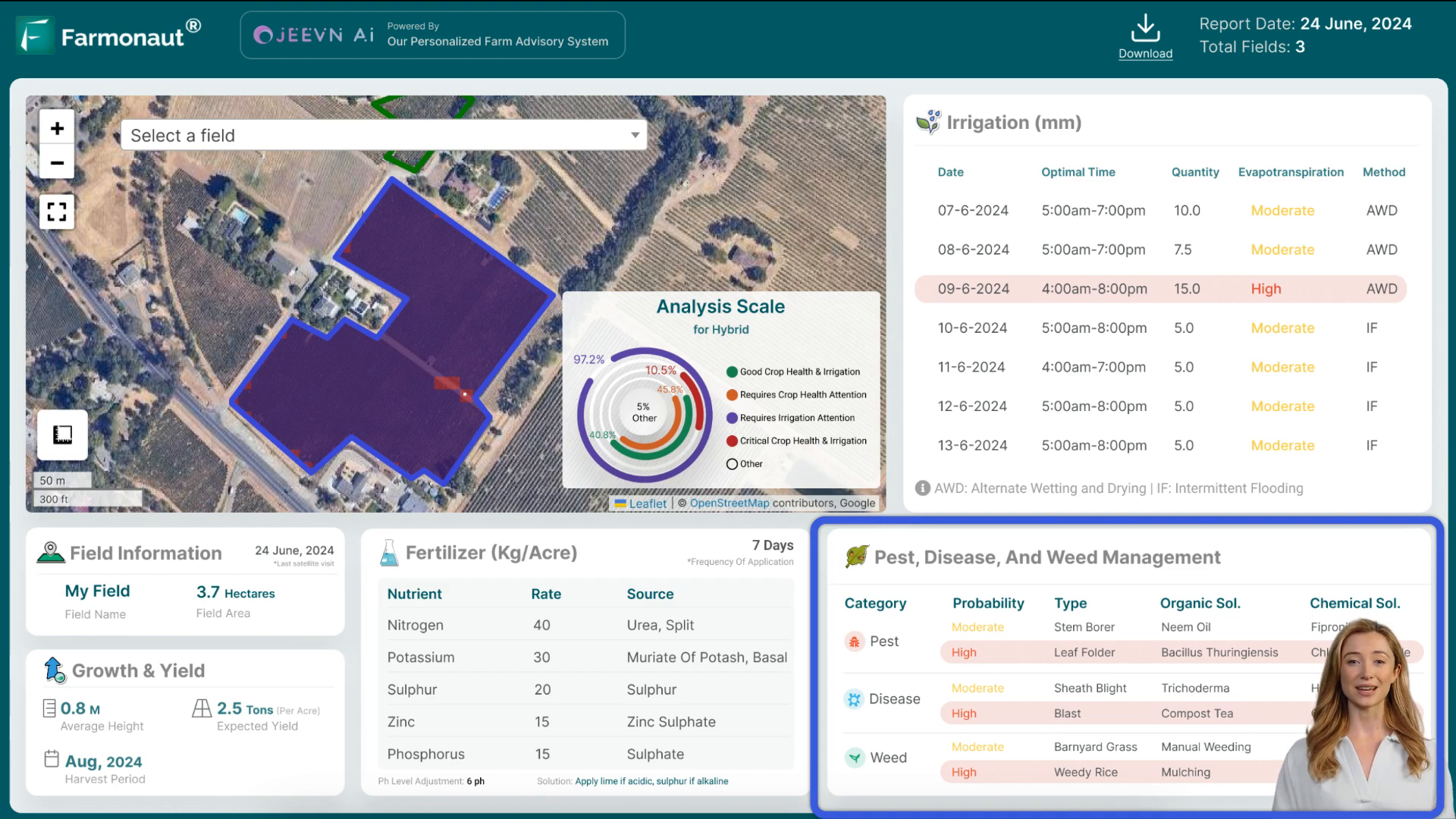
This ensures that sorghum crops receive the right amount of water at the right time, promoting healthy growth while conserving Colorado’s valuable water resources. In a state where water rights and usage are closely monitored, JEEVN AI’s water management capabilities are particularly valuable to sorghum farmers.
📈 Crop Growth and Yield Predictions: Planning for Success
The impact of JEEVN AI on sorghum growth and yield in Colorado is profound. By ensuring optimal soil conditions and providing critical predictions, the tool enables farmers to make informed decisions that enhance productivity and efficiency.
JEEVN AI offers Colorado sorghum farmers:
- Crop height forecasts
- Expected yield per acre estimates
- Anticipated harvest time predictions
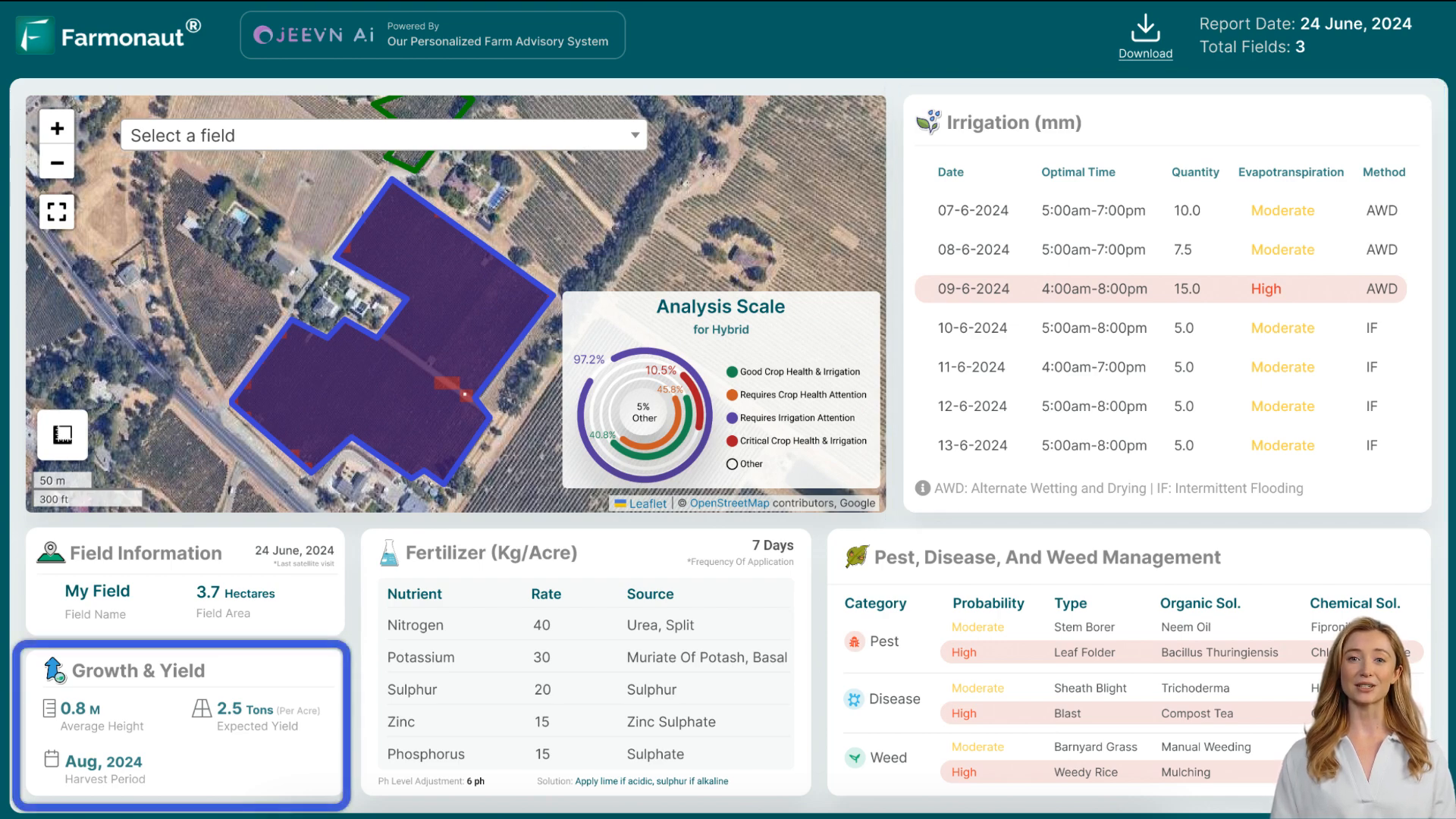
These predictions allow farmers to plan their activities more efficiently, from scheduling labor to arranging transportation and storage. Regular monitoring and timely interventions guided by JEEVN AI can result in healthier sorghum crops with fewer instances of stress and disease, leading to higher quality produce and increased market value.
🚀 The Future of Sorghum Farming in Colorado
JEEVN AI is more than just a farm advisory tool; it’s a game-changer for Colorado’s sorghum industry. By leveraging the power of artificial intelligence and satellite technology, JEEVN AI provides farmers with the insights and recommendations they need to optimize their farming practices and achieve greater success in the unique agricultural landscape of Colorado.
As Colorado faces challenges such as water scarcity and climate change, tools like JEEVN AI become increasingly valuable. They enable farmers to adapt to changing conditions, make more efficient use of resources, and maintain the state’s position as a key player in sorghum production.

Embracing JEEVN AI means saying goodbye to guesswork and welcoming a new era of precision agriculture tailored to the needs of Colorado sorghum farmers. With this innovative technology, the future of sorghum farming in the Centennial State looks brighter than ever.
❓ Frequently Asked Questions
What is JEEVN AI?
JEEVN AI is an innovative farm intelligence system developed by Farmonaut Technologies. It uses satellite imagery, artificial intelligence, and local farm data to provide personalized recommendations for crop management.
How can JEEVN AI benefit Colorado sorghum farmers?
JEEVN AI offers Colorado sorghum farmers precise insights on soil health, pest management, irrigation scheduling, and yield predictions, helping them optimize their farming practices for the state’s unique climate and conditions.
Is JEEVN AI suitable for small-scale sorghum farms in Colorado?
Yes, JEEVN AI can be beneficial for farms of all sizes. Its personalized recommendations can help small-scale farmers make more informed decisions and improve their crop management practices.
How does JEEVN AI help with water conservation in Colorado?
JEEVN AI provides precise irrigation recommendations based on weather data, soil moisture levels, and crop requirements, helping farmers use water more efficiently in Colorado’s semi-arid climate.
Can JEEVN AI help Colorado sorghum farmers comply with local agricultural regulations?
While JEEVN AI doesn’t directly ensure compliance, its recommendations for water usage, fertilizer application, and pest management can help farmers align their practices with local regulations and sustainability goals.
How often does JEEVN AI update its recommendations?
JEEVN AI continuously analyzes data and updates its recommendations regularly, ensuring that farmers have access to the most current information for their decision-making.
Is training required to use JEEVN AI?
While JEEVN AI is designed to be user-friendly, some initial training may be beneficial to help farmers make the most of its features. Farmonaut Technologies likely offers support and resources for new users.
How does JEEVN AI account for Colorado’s unique climate challenges?
JEEVN AI integrates local weather data and historical patterns specific to Colorado, allowing it to provide recommendations that are tailored to the state’s unique climate challenges and sorghum growing conditions.